Ultimate EDC Knife Showdown: Benchmade Bugout vs. Hogue Deka
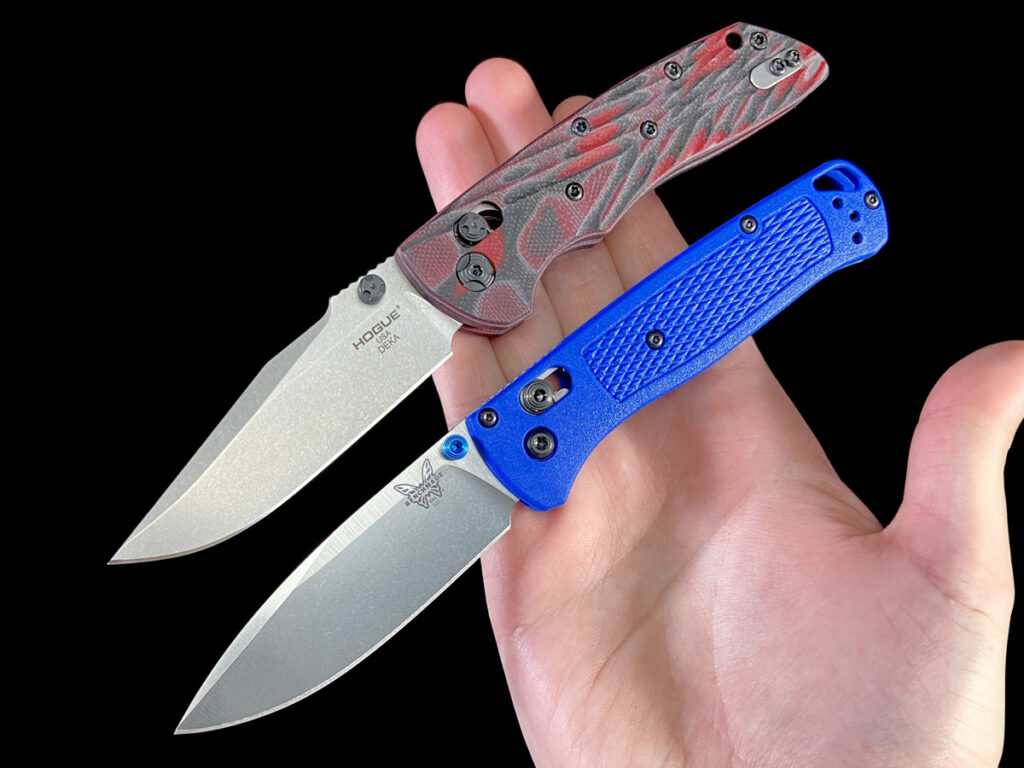
The Benchmade Bugout and the Hogue Deka are two of the best everyday carry knives on the market today. They’re so good, in fact, that they’ve reset our expectations for ultralight folding knives across the board. They have a lot in common — thin, light, and made in the USA — but they’re not interchangeable. Depending on your wants and needs, you may prefer one over the other.
AXIS Lock vs. ABLE Lock
Perhaps the most obvious similarity between the Benchmade Bugout and the Hogue Deka is the locking mechanism. You’ve seen it for years on Benchmade knives, where it’s known as the AXIS Lock. Up until a few years ago, the AXIS Lock was protected under a patent and exclusively found on Benchmade knives, but now that patent has expired it’s made its way onto folders from other brands. Each new brand that uses it seems to give it their own name, but they all work essentially the same so here at the KnifeCenter we’ve dubbed them all “crossbar locks” to keep things simple.
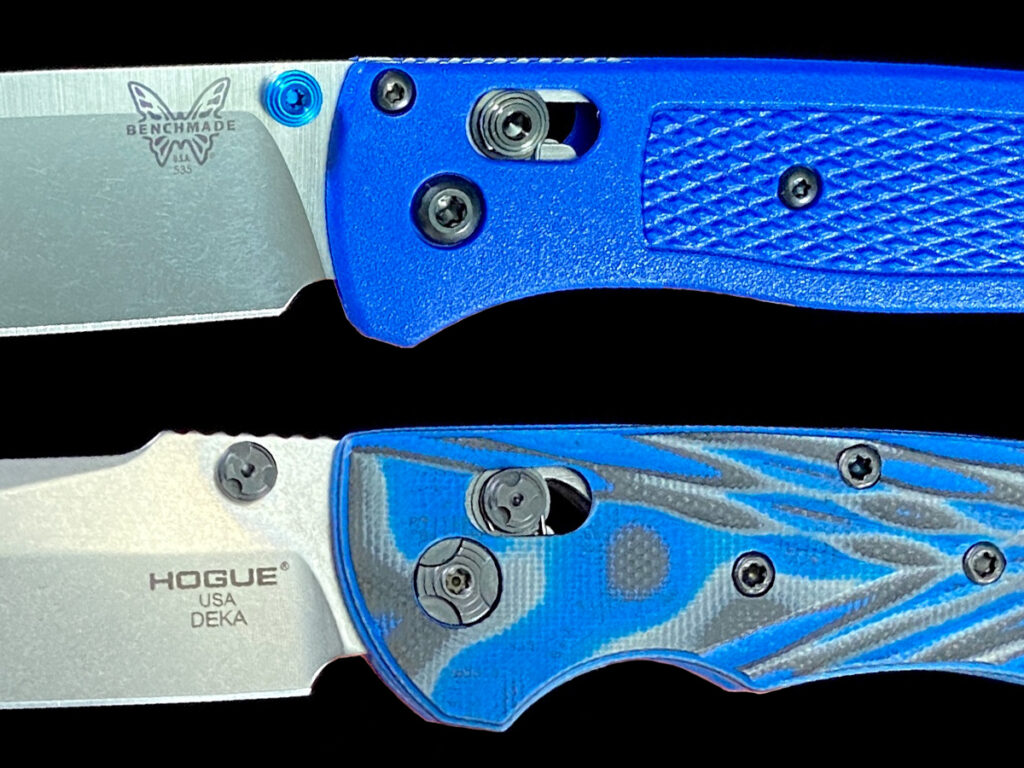
Whether you call it an AXIS Lock or an ABLE Lock, the crossbar lock has a number of advantages:
- It’s completely ambidextrous. It works exactly the same whether you use your left or right hand to operate it.
- It’s extremely strong and stable, meaning it can soak up years of use and still lock up securely every time.
- It’s safe to use, because you can unlock and close the knife without ever having to put your hand in the path of the blade.
- It’s fun! Once you get the hang of it, you can open and close the knife by pulling back on the crossbar and flicking the blade with your wrist. There are few faster ways to open a knife.
The differences between the AXIS lock on the Benchmade Bugout and the ABLE lock on the Hogue Deka are subtle. The Benchmade Bugout is a little snappier, with slightly more resistance to opening — it definitely “pops” open when you flick the thumbstuds. The Hogue Deka is a little smoother, with an almost hydraulic feel that glides open effortlessly. Whether one is better than the other is entirely up for debate.
Blade Shapes Compared: Clip Point vs. Drop Point
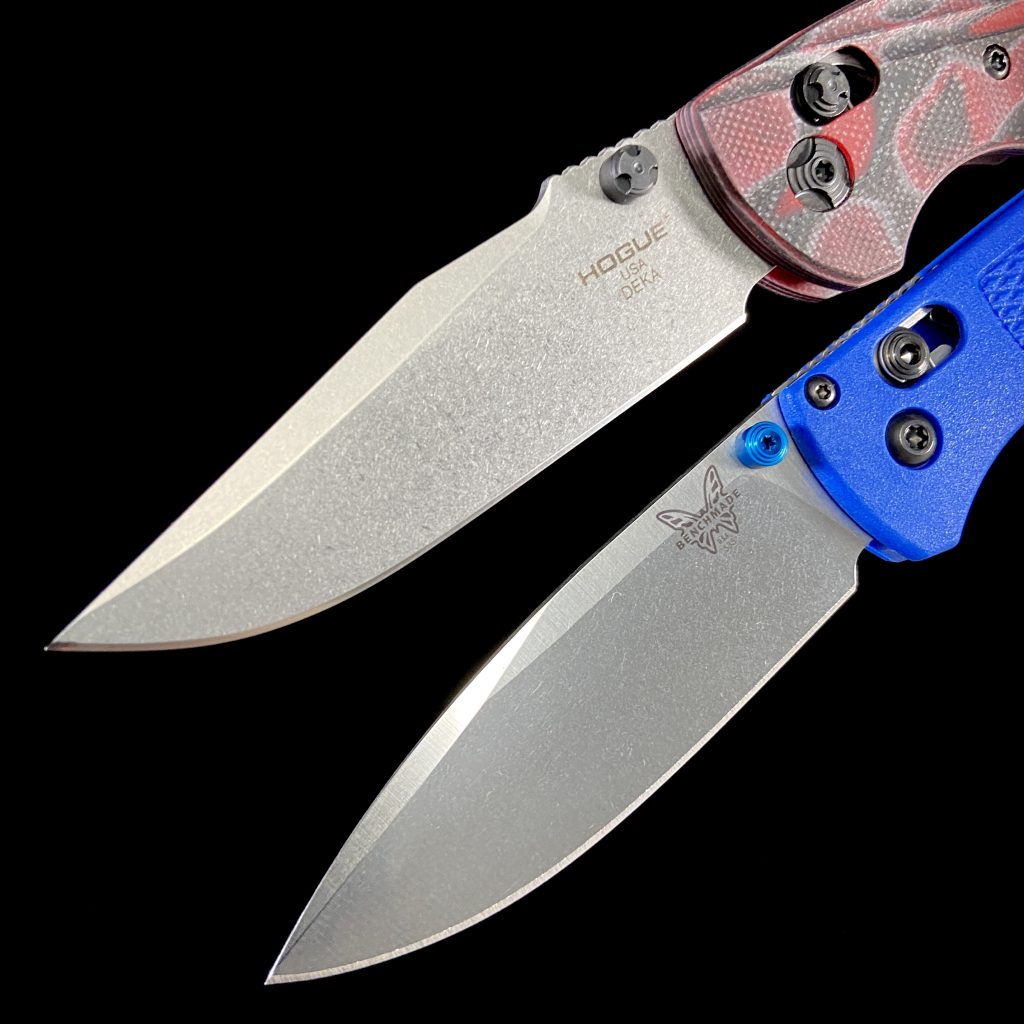
The Benchmade Bugout has a classic drop point blade shape perfect for all-around utility, and is available with partial serrations should you need a little extra horsepower for tearing through rope, etc. The Hogue Deka has two blade shape options: clip point, or modified Wharncliffe with a compound grind for a little extra style. Both the Bugout and the Deka come razor-sharp out of the box, but it should be said that the edge on the Deka (and every Hogue knife, for that matter) is impressively polished to a hair-popping sharpness.
Handle Ergonomics Compared
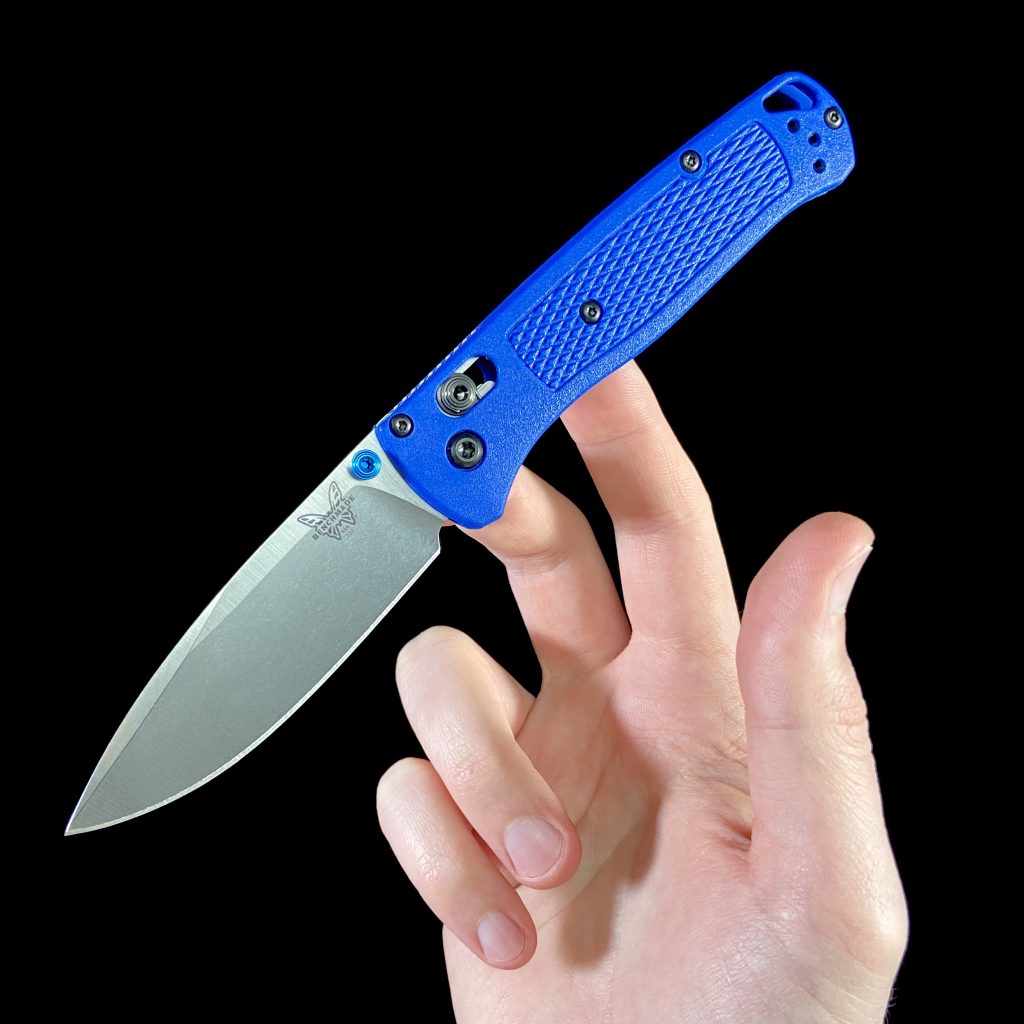
The handle profile of the Benchmade Bugout is a brilliantly straightforward yet refined design that doesn’t waste a millimeter of space. You can comfortably get up right behind the edge for more control without feeling like you have to choke up on the handle, and yet it’s long enough to wrap all four fingers around when you need to bear down.
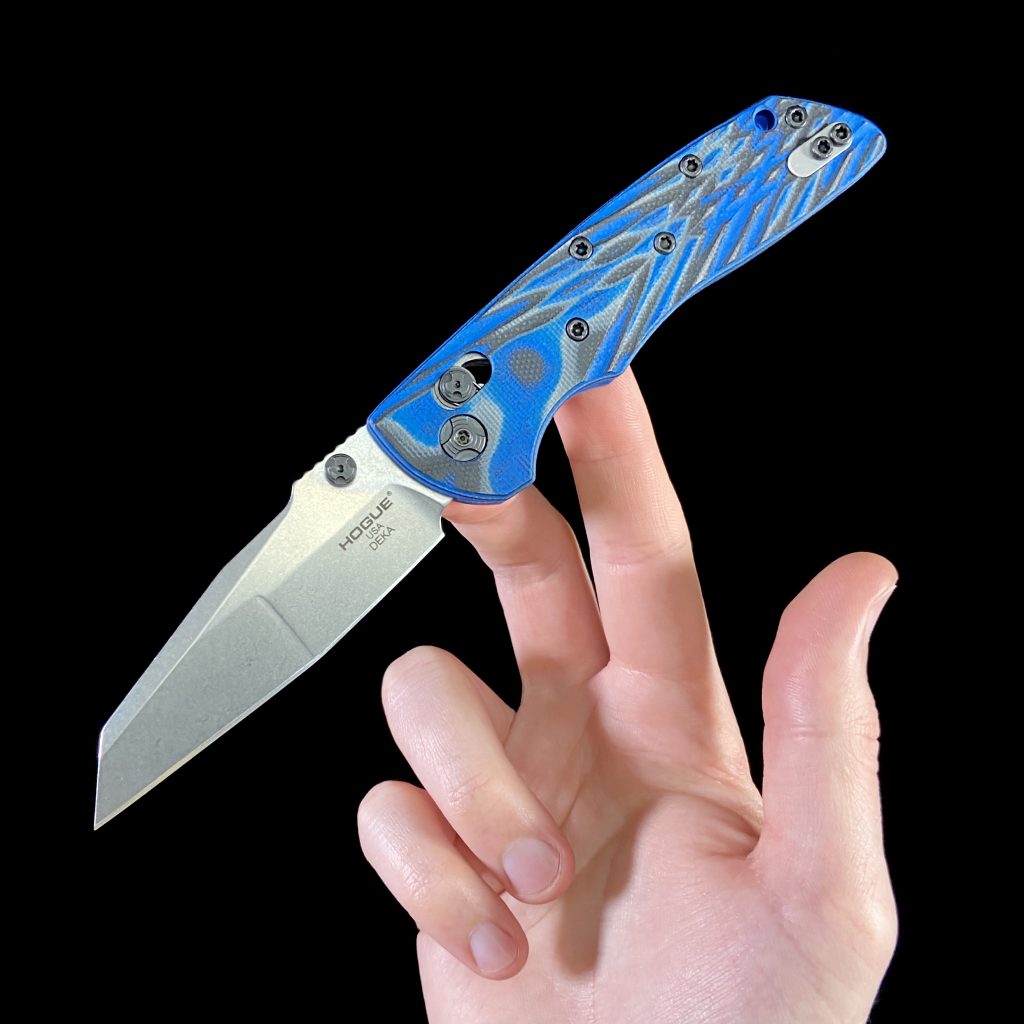
The Deka doesn’t have quite the ergonomic affordance that the Bugout does. It has a more pronounced guard with a finger scallop that guides your hand back away from the edge. While reassuring, these extra features do necessitate some conscious finger repositioning when manipulating the blade through different types of cuts.
Which One For Your Pocket?
Both knives are made in the USA by companies with rock-solid reputations. Both knives are lightweight, agile, and ready to work.
The Benchmade Bugout is lighter and slightly more expensive. Some may dislike the more “plastic-y” feel of the handle, but personally I find it to be the more comfortable of the two. The Bugout also has a more discreet deep carry pocket clip.
The Hogue Deka, on the other hand, spends a little extra weight for a sturdier handle and offers a better blade steel for the price.
Hogue is a significantly smaller company than Benchmade, and they make knives in relatively small batches. Unfortunately, this means that they’re not always in stock. Fortunately, it also gives them the ability to focus on the little details, like the silky-smooth deployment action and the highly refined edges on their blades.
Benchmade has a well-deserved reputation for quality. They’ve grown to be one of the biggest knifemakers in the country for good reason, with decades of innovation under their belt and one of the best warranties in the business.
So. You tell us, which one are you buying?